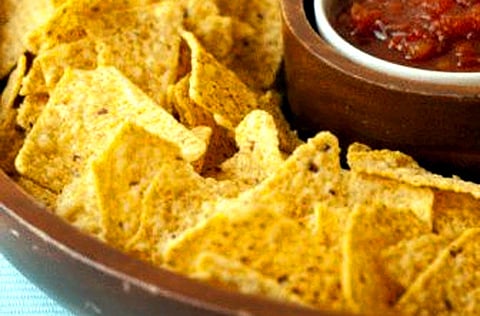Eat to live or live to eat?
As you eat more real food you'll find your idea of what's good flips over

Just over a year ago, there was a scare in India involving a popular packaged snack we'll call Crunchies. A rumour circulated that it contained plastic and was, therefore, "bad for you". I found this hilarious because Crunchies weren't exactly a health food to begin with — loaded as they were with pretty much nothing except salt, carbohydrates and fat.
Eventually the company assured people that Crunchies contained only "ingredients you'd use at home" and fans heaved a sigh of relief and went back to munching. With the snack exonerated, the point was lost that either way, Crunchies should not be eaten regularly.
Journalist and food writer Michael Pollan calls products such as Crunchies "food-like substances". They're edible, but don't offer the range and balance of nutrients that real foods do. It's common to underestimate the danger of these products. Sometimes, there is a wariness of refined ingredients, but it's often too specific.
For example in India, white flour is assumed to be bad for you, while whole grain flour is good. Though there is sound reasoning behind this, too many people do not understand why and are therefore unable to apply it to other products.
The ‘glucose biscuit' myth
And so, many people in India believe that commercial biscuits are good for you, especially a version called "glucose biscuits". These hardened blobs of refined flour, simple sugars, saturated fats and chemicals are unhealthy in the extreme. But India has a history of glucose products being aggressively marketed as health and energy foods (no doubt exploiting glucose's connection with life-saving IV drips). If you understand how the body deals with sugar, you'll know that eating glucose for useable energy is like expecting a roller coaster ride to entertain you for a week.
But what is it that makes processed food undesirable? Pollan offers a clear explanation in his essential book, In Defense of Food. The food industry's primary concern is to prolong shelf-life and the best way to do this is remove nutrients from foodstuffs, making them less appetising to microbes, insects and vermin. (But not, as Pollan observes, to humans.) So with grains for example, it involves removing the bran, which is full of healthy fatty acids that attract creatures and also go rancid quickly. When companies create food-like substances from this denuded stock, they often put back whatever nutrient is in fashion — perhaps antioxidants — creating a simplified version of the original food's nutrient profile. A range of chemicals ensures these concoctions stay edible.
Apart from being unhealthy in themselves, the biggest danger is how these products displace legitimate foods from our diets. That certainly doesn't mean you should never eat something out of a box or packet. As much as I believe in removing artificial foods from one's diet, I don't believe in eliminating anything one loves. So if you love Crunchies, you should elevate them. Make them something to earn, something to look forward to. Not only will you probably enjoy them more when you eat them less, you'll find that you don't miss them as much as you thought you would.
We have this idea that eating healthfully involves denying ourselves all that's good in life. But as you eat more real food and fewer food-like substances, you'll find your idea of what's good flips over and you're able to reach for fruits and nuts with as much joy as you used to grab that bag of plastic Crunchies. Or was it that plastic bag of Crunchies? Who cares, just don't eat enough for it to matter.
(Gautam Raja is a journalist based in the US.)



